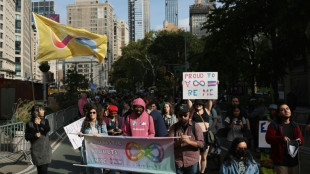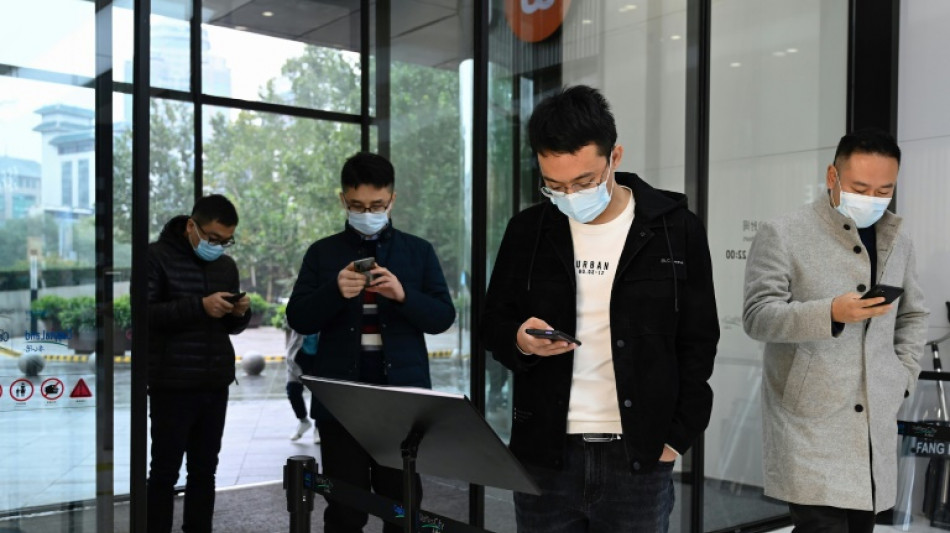
-
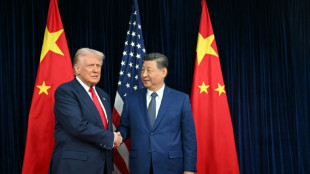 Asia markets fluctuate as investors mull Trump-Xi talks
Asia markets fluctuate as investors mull Trump-Xi talks
-
Trump, Xi ease fight on tariffs, rare earths
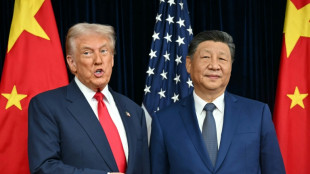
-
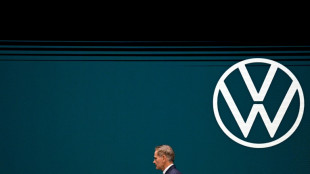 Volkswagen posts 1-billion-euro loss on tariffs, Porsche woes
Volkswagen posts 1-billion-euro loss on tariffs, Porsche woes
-
'Fight fire with fire': California mulls skewing electoral map
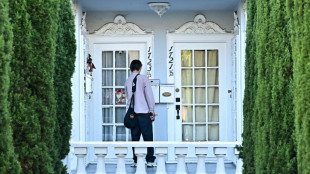
-
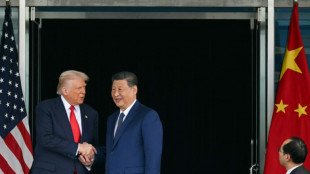 Fentanyl, beans and Ukraine: Trump hails 'success' in talks with Xi
Fentanyl, beans and Ukraine: Trump hails 'success' in talks with Xi
-
'Nowhere to sleep': Melissa upends life for Jamaicans
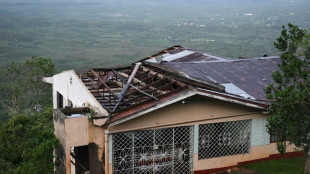
-
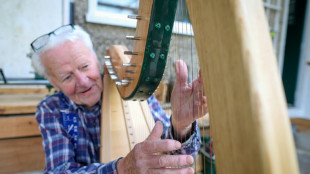 Irish octogenarian enjoys new lease on life making harps
Irish octogenarian enjoys new lease on life making harps
-
Tanzania blackout after election chaos, deaths feared

-
 G7 meets on countering China's critical mineral dominance
G7 meets on countering China's critical mineral dominance
-
Trump hails tariff, rare earth deal with Xi
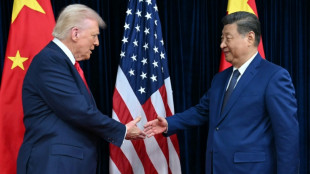
-
 Court rules against K-pop group NewJeans in label dispute
Court rules against K-pop group NewJeans in label dispute
-
India's Iyer says 'getting better by the day' after lacerated spleen

-
 Yesavage fairytale carries Blue Jays to World Series brink
Yesavage fairytale carries Blue Jays to World Series brink
-
Bank of Japan keeps interest rates unchanged

-
 Impoverished Filipinos forge a life among the tombstones
Impoverished Filipinos forge a life among the tombstones
-
Jokic posts fourth straight triple-double as Nuggets rout Pelicans

-
 UN calls for end to Sudan siege after mass hospital killings
UN calls for end to Sudan siege after mass hospital killings
-
Teenage Australian cricketer dies after being hit by ball

-
 As Russia advances on Kupiansk, Ukrainians fear second occupation
As Russia advances on Kupiansk, Ukrainians fear second occupation
-
Trade truce in balance as Trump meets 'tough negotiator' Xi

-
 China to send youngest astronaut, mice on space mission this week
China to send youngest astronaut, mice on space mission this week
-
Yesavage gem carries Blue Jays to brink of World Series as Dodgers downed

-
 With inflation under control, ECB to hold rates steady again
With inflation under control, ECB to hold rates steady again
-
Asia stocks muted with all eyes on Trump-Xi meeting

-
 Personal tipping points: Four people share their climate journeys
Personal tipping points: Four people share their climate journeys
-
Moto3 rider Dettwiler 'no longer critical' after crash: family

-
 US economy in the dark as government shutdown cuts off crucial data
US economy in the dark as government shutdown cuts off crucial data
-
Trump orders nuclear testing resumption ahead of Xi talks

-
 'Utter madness': NZ farmers agree dairy sale to French group
'Utter madness': NZ farmers agree dairy sale to French group
-
Samsung posts 32% profit rise on-year in third quarter

-
 30 years after cliffhanger vote, Quebec separatists voice hope for independence
30 years after cliffhanger vote, Quebec separatists voice hope for independence
-
Taxes, labor laws, pensions: what Milei wants to do next

-
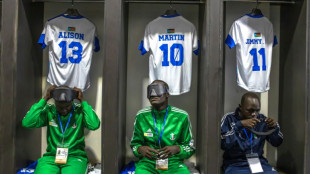 South Sudan's blind football team dreams of Paralympic glory
South Sudan's blind football team dreams of Paralympic glory
-
US says 4 killed in new strike on alleged Pacific drug boat

-
 What we do and don't know about Rio's deadly police raid
What we do and don't know about Rio's deadly police raid
-
'They slit my son's throat' says mother of teen killed in Rio police raid

-
 Arteta hails 'special' Dowman after 15-year-old makes historic Arsenal start
Arteta hails 'special' Dowman after 15-year-old makes historic Arsenal start
-
Google parent Alphabet posts first $100 bn quarter as AI fuels growth
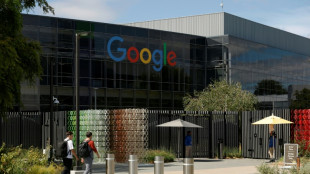
-
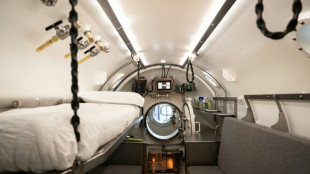 Underwater 'human habitat' aims to allow researchers to make weeklong dives
Underwater 'human habitat' aims to allow researchers to make weeklong dives
-
Maresca slams Delap for 'stupid' red card in Chelsea win at Wolves

-
 'Non-interventionist' Trump flexes muscles in Latin America
'Non-interventionist' Trump flexes muscles in Latin America
-
Slot defends League Cup selection despite not meeting 'Liverpool standards'

-
 'Poor' PSG retain Ligue 1 lead despite stalemate and Doue injury
'Poor' PSG retain Ligue 1 lead despite stalemate and Doue injury
-
Liverpool crisis mounts after League Cup exit against Palace

-
 Kane scores twice as Bayern set European wins record
Kane scores twice as Bayern set European wins record
-
Radio Free Asia suspends operations after Trump cuts and shutdown

-
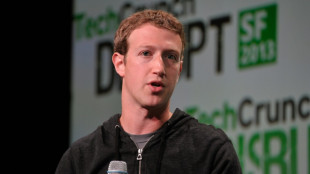 Meta shares sink as $16 bn US tax charge tanks profit
Meta shares sink as $16 bn US tax charge tanks profit
-
Dollar rises after Fed chair says December rate cut not a given
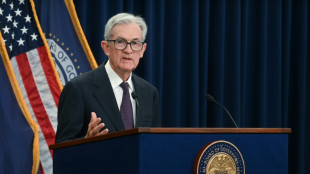
-
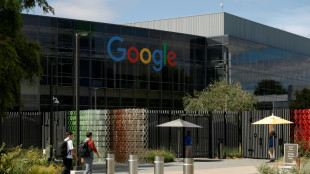 Google parent Alphabet posts first $100 bn quarter as AI drives growth
Google parent Alphabet posts first $100 bn quarter as AI drives growth
-
Rob Jetten: ex-athlete setting the pace in Dutch politics


Not easy being green: China's 'health codes' define Covid-era life
Days after buying over-the-counter medicine from a pharmacy in Beijing, university student Yu was stunned to find her prized green health code -- the essential rating needed to enter the city's shops, offices and public transport -- was gone.
In a scene being repeated across the Chinese capital, a pop-up window now warned the app could no longer ascertain her coronavirus risk status.
School was out for Chinese New Year, so accessing classrooms was not a problem. Getting her bubble tea fix, however, was another matter.
"I'm not buying enough tea to meet the minimum for delivery, but the milk tea shop won't let me in without a health code," she lamented on the Twitter-like Weibo social media platform.
Yu was one of thousands who showed up to Beijing workplaces or shopping malls this week only to find they were barred entry due to their health code status, as already-strict virus controls were ramped up ahead of the Winter Olympics.
Overnight, the city had quietly rolled out a new rule requiring everyone who had bought medication for anything that might be a Covid symptom -- including fever, cough and throat dryness -- to take a virus test before their health app status could be restored to green.
But this was not simply a tech hiccup.
China -- where the coronavirus first emerged in late 2019 -- is one of the last places in the world sticking to a zero-tolerance policy in which the slightest hint of an outbreak is met by mass testing and strict quarantines.
The health codes, with their colour-coded system of red, yellow and green signifying different levels of Covid risk, have been a crucial pillar of this system.
Health-tracking apps are now required for entry almost everywhere, including offices, transport stations, stores, malls and taxis.
Without it, normal life grinds to a halt.
- Checking in -
As complaints like Yu's piled up on social media, the Weibo hashtag "Beijing Health Kit Pop-up" gained more than a million views.
"I can't go out to eat, or buy a coffee -- it's so annoying," fumed one of many hit by the change.
The "pop-up" drama highlighted the country's dependence on the health code system, which debuted in 2020, just a few months into the pandemic.
While the apps are technically not mandatory, it is effectively impossible to move around China without one.
Beijing's app is one of dozens of local health-monitoring programmes that use geolocation and health screening data to track users' movements and assess whether they have been near people with the virus.
It also records vaccination status and coronavirus test results.
Some apps are so sensitive they can detect specific districts visited and block users from accessing transport if they have been to communities ranked as high risk.
At least one criminal has been apprehended after having to submit data to the app, according to state media.
Reportedly on the run for decades, he gave himself up because he could no longer enter stores or find jobs without the code.
- Overwhelmed -
The health codes' rollout was initially met with some privacy concerns -- but those were quickly steamrolled as China began to tout its handling of the pandemic as a success story in contrast with the chaos abroad.
Now, those travelling between provinces often have to download multiple local versions of the app -- as well as a national version linked to their phone numbers -- and show green codes on all apps when arriving at their destinations.
Many offices, restaurants and transport stations require visitors to open up the app and scan location-specific QR codes to "check in" before entering.
The system's ubiquity, while useful for officials seeking to track coronavirus contacts, has also proven to be one of its main weaknesses.
Residents in the western city of Xi'an complained in December of a systemwide crash on their local health code app after authorities suddenly ordered mass testing of millions of inhabitants over a spike in coronavirus cases.
The order prompted residents to flock to Covid-19 testing centres, overwhelming the health code system.
Local media reported hours-long lines of people trying to enter subway stations as well as a second system crash in January after the city had been placed under strict lockdown.
The city official in charge of the technology was swiftly fired.
L.Dubois--BTB




